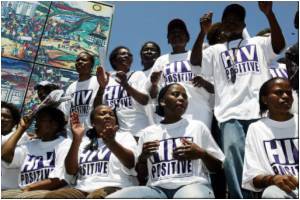African-American women develop functional health challenges earlier than their fellow seniors, researchers say

The finding surfaced as researchers looked generally at how the intersection of gender and race/ethnicity affect health disparities among older African-Americans, Mexican-Americans and Whites.
David Warner, assistant professor of sociology at Case Western Reserve University, found that, in general, men of all racial/ethnic groups fared better than the women. And, those with education, economic means and higher net worth reported fewer physical health issues.
"But we could not find the reason why African-American women developed limitations faster than other gender and racial/ethnic groups," he said.
Warner and his co-investigator Tyson H. Brown from Vanderbilt University set out to approach health disparities in a new way by looking at gender and race/ethnicity concurrently in order to better understand health disparities.
Overall, the researchers found that gender and race/ethnicity jointly and simultaneously define access to resources that promote health and exposure to risks that undermine the health of individuals over time.
Advertisement
Social Science & Medicine reported their research findings in the article, "Understanding how race/ethnicity and gender define age-trajectories of disability: An intersectionality approach."
Advertisement
Disabilities were measured from answers to self-reported survey questions that assessed mobility, strength and upper and lower body functional limitations. They also examined information about early life experiences, adult social economic status, marriage and health-related behaviors to determine what influence these might have on disabilities.
Statistical analyses of survey responses showed emerging patterns in the functional health of these seniors.
Early life events, adult socioeconomic status, marital status and health behaviors explained disparities in the limitations men experienced, but didn't do so as clearly for women.
Aging White men overall started out with less than one disabling limitation on average, but every year slightly increased until age 75 when they had slightly more than two.
Mexican-American women, who fared the worst, reached 75 with twice as many physical limitations on average as White men—nearly five.
Mexican-American men, African-American men, White men and White women did not vary significantly in the rate at which they developed disabilities as they aged. However, African-American women gained more disabilities early on. After their mid-60s, the rate of disabilities began to decrease. By age 75, it appeared the pace of acquiring disabilities had stabilized.
Warner said new information about physical health changes with age emerged when race/ethnicity and gender were jointly examined.
According to the researchers, this study's findings demonstrate the need for health-preventions efforts aimed at eliminating functional health disparities overall, but also point to the need for further research and interventions that address the unique health experiences of African American women with age.
Source-Eurekalert










